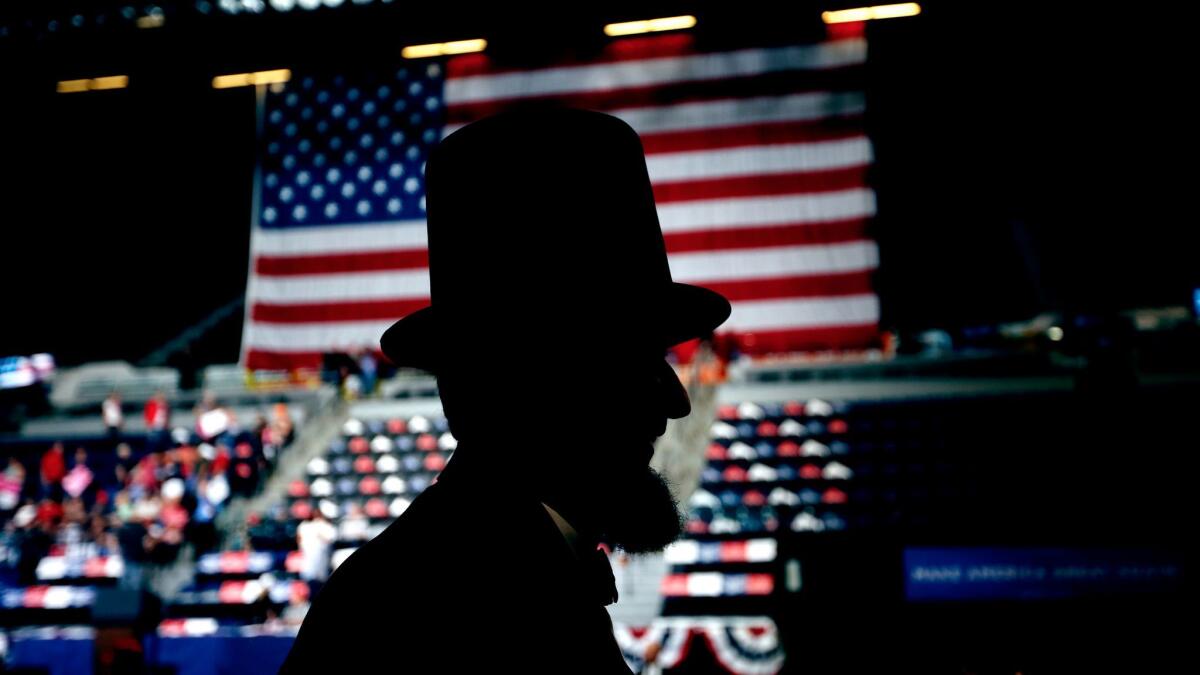Opinion: Abraham Lincoln, who spoke calmly but acted decisively, was the anti-Trump

- Share via
To the editor: “If destruction be our lot,” our rail splitter-turned-president admonished in 1838, “we must be ourselves its author and finisher. As a nation of freemen we must live through all time or die by suicide.” (“What would Lincoln think of Trump?” Opinion, July 12)
Abraham Lincoln imagines here that we are more likely to splinter from within than be overtaken by some foreign invasion.
Sidney Blumenthal conjectures that Lincoln has much light to shine on the present state of the republic. While I would not speculate on how our 16th president might regard our 45th, it may be useful to consider Lincoln’s legendary political temperament.
Lincoln used modest and moderate language in discourse and, when possible, he called upon his fellow citizens to listen to the “better angels of our nature.” His reliance on reason and his patience were perhaps his greatest gifts. He abhorred strident language, even in pursuit of desirable ends, and trusted that, in the end, justice and natural law would prevail.
David DiLeo, San Clemente
The writer is a professor emeritus of history at Saddleback College.
..
To the editor: Although Blumenthal’s connections with the Clintons will lead many people to write off his argument without reading it, he actually wrote a quite interesting and cogent column about Lincoln and what he had to say about the harm a demagogue motivated by “celebrity and fame” who “thirsts and burns for distinction” could do if he gained power in the U.S.
When Lincoln delivered this warning in 1838, he was an elected Illinois state legislator from the Whig Party, and it wasn’t just a generic message. It’s likely everyone in his audience had someone in mind when they were listening: Trump’s hero, Andrew Jackson, who had recently left the presidency but whom a lot of Whigs suspected was still running the country via his hand-picked successor, Martin Van Buren.
Mark Gabrish Conlan, San Diego
Follow the Opinion section on Twitter @latimesopinion and Facebook
More to Read
A cure for the common opinion
Get thought-provoking perspectives with our weekly newsletter.
You may occasionally receive promotional content from the Los Angeles Times.









